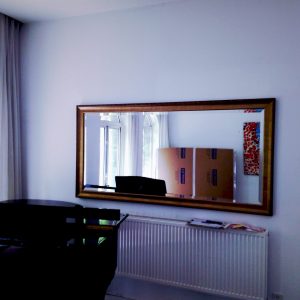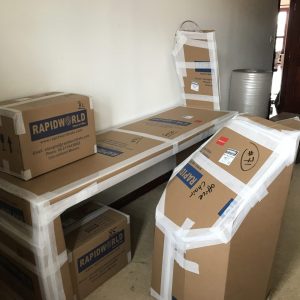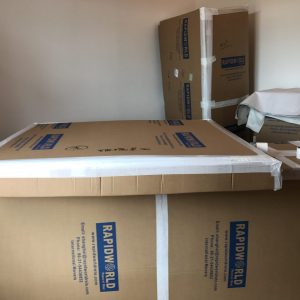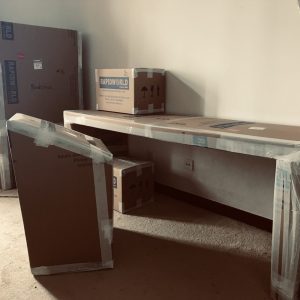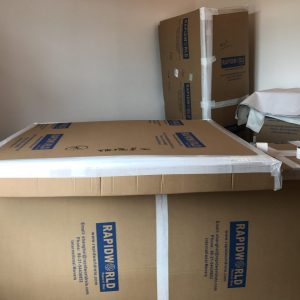Moving to China? Shipping Furniture & Personal Effects to China?RapidWorld Relocations is a leading international moving company in China with offices in Beijing, Guangzhou and Shanghai.
We offering quality international moving services and relocation support throughout China. Our services cover most of the capital cities of China such as Shanghai, Beijing, Guangzhou, Shenzhen, Chengdu, Changchun, Harbin, Dalian, Qingdao, Nanjing, Suzhou, Hangzhou, Xiamen, Nanchang, Jinan, Qinhuangdao, Wuhan, Xiaogan, Tianjin, etc.
RapidWorld’s agent network ensures that we can move you from everywhere in China to almost everywhere else in the world. We provide international moving services to US, Australia, New Zealand, Germany, France, Singapore, Brazil, Russia, Dubai, Abu Dhabi, Canada, Hong Kong, Taiwan, Thailand, Malaysia, UK, Netherlands, etc.
Submit a quote request, email us or call us at 86-21-5443-6852, and we will get back to you shortly.

China, officially the People’s Republic of China (PRC), is a unitary sovereign state in East Asia and the world’s most populous country, with a population of over 1.381 billion. Covering approximately 9.6 million square kilometres (3.7 million square miles), it is the world’s second-largest state by land area and third- or fourth-largest by total area. Governed by the Communist Party of China, it exercises jurisdiction over 22 provinces, five autonomous regions, four direct-controlled municipalities (Beijing, Tianjin, Shanghai, and Chongqing) and the Special Administrative Regions Hong Kong and Macau, also claiming sovereignty over Taiwan. China is a great power and a major regional power within Asia, and has been characterized as a potential superpower.
China emerged as one of the world’s earliest civilizations in the fertile basin of the Yellow River in the North China Plain. For millennia, China’s political system was based on hereditary monarchies, or dynasties, beginning with the semi-legendary Xia dynasty. Since then, China has then expanded, fractured, and re-unified numerous times. In 1912, the Republic of China (ROC) replaced the last dynasty and ruled the Chinese mainland until 1949, when it was defeated by the communist People’s Liberation Army in the Chinese Civil War. The Communist Party established the People’s Republic of China in Beijing on 1 October 1949, while the ROC government retreated to Taiwan with its present de facto temporary capital in Taipei. Both the ROC and PRC continue to claim to be the legitimate government of all China, though the latter has more recognition in the world and controls more territory.
Since the introduction of economic reforms in 1978, China has become one of the world’s fastest-growing major economies. As of 2016, it is the world’s second-largest economy by nominal GDP and largest by purchasing power parity (PPP). China is also the world’s largest exporter and second-largest importer of goods. China is a recognized nuclear weapons state and has the world’s largest standing army and second-largest defense budget. The PRC is a member of the United Nations, as it replaced the ROC as a permanent member of the U.N. Security Council in 1971. China is also a member of numerous formal and informal multilateral organizations, including the WTO, APEC, BRICS, the Shanghai Cooperation Organization (SCO), the BCIM and the G-20.
The Landscape and Climate of China
The territory of China lies between latitudes 18° and 54° N, and longitudes 73° and 135° E. China’s landscapes vary significantly across its vast width. In the east, along the shores of the Yellow Sea and the East China Sea, there are extensive and densely populated alluvial plains, while on the edges of the Inner Mongolian plateau in the north, broad grasslands predominate. Southern China is dominated by hills and low mountain ranges, while the central-east hosts the deltas of China’s two major rivers, the Yellow River and the Yangtze River. Other major rivers include the Xi, Mekong, Brahmaputra and Amur. To the west sit major mountain ranges, most notably the Himalayas. High plateaus feature among the more arid landscapes of the north, such as the Taklamakan and the Gobi Desert. The world’s highest point, Mount Everest (8,848m), lies on the Sino-Nepalese border. The country’s lowest point, and the world’s third-lowest, is the dried lake bed of Ayding Lake (−154m) in the Turpan Depression. China’s climate is mainly dominated by dry seasons and wet monsoons, which lead to pronounced temperature differences between winter and summer. In the winter, northern winds coming from high-latitude areas are cold and dry; in summer, southern winds from coastal areas at lower latitudes are warm and moist. The climate in China differs from region to region because of the country’s highly complex topography.
Enviromental Issues
A major environmental issue in China is the continued expansion of its deserts, particularly the Gobi Desert. Although barrier tree lines planted since the 1970s have reduced the frequency of sandstorms, prolonged drought and poor agricultural practices have resulted in dust storms plaguing northern China each spring, which then spread to other parts of east Asia, including Korea and Japan. China’s environmental watchdog, SEPA, stated in 2007 that China is losing 4,000 km2 (1,500 sq mi) per year to desertification. Water quality, erosion, and pollution control have become important issues in China’s relations with other countries. Melting glaciers in the Himalayas could potentially lead to water shortages for hundreds of millions of people. In recent decades, China has suffered from severe environmental deterioration and pollution. While regulations such as the 1979 Environmental Protection Law are fairly stringent, they are poorly enforced, as they are frequently disregarded by local communities and government officials in favor of rapid economic development. Urban air pollution is a severe health issue in the country; the World Bank estimated in 2013 that 16 of the world’s 20 most-polluted cities are located in China. China is the world’s largest carbon dioxide emitter. The country also has significant water pollution problems: 40% of China’s rivers had been polluted by industrial and agricultural waste by late 2011. In 2014, the internal freshwater resources per capita of China reduced to 2,062m3, and it was below 500m3 in the North China Plain, while 5,920m3 in the world. However, China is the world’s leading investor in renewable energy commercialization, with $52 billion invested in 2011 alone; it is a major manufacturer of renewable energy technologies and invests heavily in local-scale renewable energy projects. By 2009, over 17% of China’s energy was derived from renewable sources – most notably hydroelectric power plants, of which China has a total installed capacity of 197 GW. In 2011, the Chinese government announced plans to invest four trillion yuan (US$619 billion) in water infrastructure and desalination projects over a ten-year period, and to complete construction of a flood prevention and anti-drought system by 2020. In 2013, China began a five-year, US$277 billion effort to reduce air pollution, particularly in the north of the country.
The increased air pollution panic is causing an exodus of foreign expats and whether or not the employer could provide feasible compensation or actions in terms of minimizing the effect of the pollution are becoming one of the most important criteria for the expats families when they decide to come or not.
RapidWorld offers one-stop air cleaning services for corporate offices and residential homes.
When it comes to moving to China, there is a process that is long established and RapidWorld is able to help you resolve any issues. From arranging visas, finding properties and school places, to helping you decide what to take, packing it and shipping it to your new home, you won’t be alone. Our services cover whole China span including Beijing, Shanghai, Guangzhou, Shenzhen, Tianjin, Wuhan, Hangzhou, Suzhou, Guilin, Guiyang, Xiamen, Jinan, Nanchang, Changchun, Harbin, etc. We can move you from everywhere else in the world to China. Here below are some important information regarding moving personal used household goods and effects to China. Please feel free to contact us should you have any question.
PROHIBITED ITEMS
The following is not permitted into China and if included in shipments will result in seizure of all prohibited items and possible legal penalties against the shipper:
· Motorcycles/scooters
· Dangerous weapons (sharp swords, combat knives, air guns or crossbows)
· Antiques (Customs are currently defining as any item over 150 years old, and of Asian/Chinese origin. Pieces of this sort that are found in a personal effects shipment must be declared, whereupon China Customs will register the pieces and will allow export of the items within six months, after this time period, they will be either rejected for export or possibly confiscated)
· Grand piano (unless the owner is a professional piano player or specialist and can provide supporting documents)
· Satellite antenna/equipment/parts
· Copy machines
· All live animals and stuffed animals on the endangered species list, animal specimens
· Publications or materials of pornographic or politically subversive nature (as much as US$ 120 penalty per item)
· Foods (to ALL air shipments and sea shipments to cities except Shanghai and Nanjing)
· Foods prohibited per Quarantine regulation, for example:
– Milk products (such as fresh milk, cheese, butter, cream) and meat products (such as pet foods)
– Fresh food, vegetable and fruits
– Genetically modified foods
– Foods contained soil, seeds, nursery stocks and other propagation materials, tobacco leaves cereal and bean (such as rice, seasame, pepper)
· Pirated intellectual property (DVDs, CDs, books, or software)
· Pool table, Table tennis table, etc
· Radio controlled toys/Walkie talkies
· Diving equipment
· Internet media system/equipment/machine (Apple TV, TiVo or Slingbox)
· Imitation gun/toy/model/rifles)
· Alcohol and tobacco (except to shipments declared in Shanghai)
· Excessive amount of items, for example:
– Over 6 kg milk powder
– Over 500 DVDs/VCDs/CDs to expatriates shipment
– More than 700 books to expatriates’ shipments declared in Shanghai (have 365+ days’ validity Employment Permit and Residence Visa)
– More than 50 books in air shipment
– More than 100 DVDs/VCDs/CDs in air shipment
– More than two same electrical appliance
– More than two musical instruments, two or more same musical instructions
– More than two sets of golf clubs
– Over 50 kg foods in the sea shipment.
– Over 4 bottles (<= 750 ml/bottle) alcohol to expatriates’ shipments declared in Shanghai (have 365+ days’ validity Employment Permit and Residence Visa)
– Over 4 bars of cigarette/over 4 boxes of cigars to expatriates’ shipments declared in Shanghai (have 365+ days’ validity Employment Permit and Residence Visa)
– Over 10 luxury handbags
– Over 1 luxury watch per family member
Please always provide your detailed survey inventory with quantity and check with RapidWorld Shanghai before shipment is packed.
RESTRICTED ITEMS
Alcohol and Tobacco is prohibited items to Chinese customs in most of area. Only Shanghai customs will allow expatriates and returning Chinese citizen bring Max. 2 to 4 bottles of alcohol, Max. 200 to 400 sticks of cigarettes under below conditions. 4 bottles (each bottle is no more than 750 ml), 400 sticks of cigarettes in each SEA shipment:- Expatriates’ work permit and residence visa are registered in Shanghai- Shipments are declared with Shanghai customs and clear in Shanghai- The total validity period on work permit is at least 365 days 2 bottles (each bottle is no more than 750 ml), 400 sticks of cigarettes in each SEA shipment:1) Returning Chinese citizen and shipments are cleared in Shanghai OR2) Expatriates’ work permit and residence visa are registered in Shanghai but their work permit has less than 1 full year validity A separate list must be provided as per forms attached to this data sheet.
DOCUMENTS REQUIRED
EXPATRIATES
· Original Residence Permit authorized by Shanghai Public Security Bureau (must be valid at least 365 days from date of issue)
· Original Passport
· Original Work Permit or Expert Permit issued by Shanghai Labor Bureau (must be valid at least 365 days from date of issue)
· Completed Application Form for Import of Personal Effects with company in Shanghai’s stamp
· China Customs Baggage Declaration Form for Incoming Passengers (Client may collect this at the airport upon arrival in China).
RETURNING CHINESE
· Original passport (There must be a latest entrance stamped by China immigration in the passport)
· Original overseas work permit or residence permit(should be valid at least one year, must stayed in origin country 1 year or more)
· Original China Customs Baggage Declaration Form for Incoming Passengers (can be collected at the airport upon arrival in China)
· Original Employment Letter issued by company in China
· Original Explanation letter to China customs(RapidWorld Shanghai can provide the template)
· Original house certificate or lease contract in China (must include client’s name)
HONG KONG & MACAU RESIDENTS
· Tong Xing Zheng (港澳居民往来内陆通行证)
· HongKong & Macau ID card
· Employment Permit issued by Shanghai Labor Bureau (must be valid at least 365 days from date of issue)
· Registration Form of Temporary Residence by Shanghai Public Security Bureau
· Completed Application Form for Import of Personal Effects with company in Shanghai’s stamp
· China Customs Baggage Declaration Form for Incoming Passengers (can be collected at the airport upon arrival in China).
TAIWANESE RESIDENTS
· Tong Xing Zheng (台湾居民往来大陆通行证)
· Employment Permit issued by Shanghai Labor Bureau (must be valid at least 365 days from date of issue)
· Registration Form of Temporary Residence issued by Shanghai Public Security Bureau
· Application Form with shipper’s signature and company’s chop (if required)
· Authorization Letter with shipper’s signature and company’s chop (if required)
· Completed Application Form for Import of Personal Effects with company in Shanghai’s stamp
· China Customs Baggage Declaration Form for Incoming Passengers (can be collected at the airport upon arrival in China).
DIPLOMATS
· Import Permit (The consulate/organization needs to apply for an Import Permit from customs first after the shipment arrives)
· Application Form for Import of Personal Effects (the form is required to be chopped by the employer and signed by transferee)
· Copy of valid Diplomatic Card and valid passport copy
CLEARANCE PROCEDURES
IMPORT PERMIT
For all shipments into China it is necessary to obtain an Import Permit. The required documents to obtain the Import Permit are the shipper’s original passport with Residence Permit valid for at least 365 days or more and Employment Permit with 365 days or more validity from issued date.
The Import Permit should be applied for in the city in which the shipper’s residence and work permit are issued from.
Customs clearance times
| Air Shipments | Surface Shipment (FCL) | Surface Shipment (LCL) |
| 5-7 working days | 10-14 working days | 10-14 working days |
| Above times are estimates only and on the basis that all required documents are available and in order. Actual time for customs clearance may be subject to change. For more information please contact destination office. |
Customs and quarantine procedures
Each shipper is only allowed to import one air shipment and one sea shipment into China (provided the import permits are applied for at the same time). Import Permit/Declaration for both air and sea shipment must be applied together after the actual arrival of the two shipments.
The required documents to obtain the Import Permit/Declaration are: original passport with Residence Permit valid for at least 365 days or more and Employment Permit with 365 days or more validity from date of issue.
If the validity period on Employment Permit (from issued date to expired date) is less than 365 days, customs has the right to return the shipment to origin. Some small shipments maybe released by customs after paying import duty for all items. However, customs will decide on the shipment size or stop this practice anytime. So, it is very critical to have a 365 days validity work permit and residence permit to clear a household goods in Central China.
CHINESE CITIZENS
Chinese citizens are not allowed to ship any large furniture or FCL shipments to China. However, considerable small furniture items can be cleared through customs which requires producing the original passport at the time of customs clearance. Please check with RapidWorld Shanghai case by case
IMPORT DUTY
All household and personal effects shipments are subject to import duties.
· Electrical appliances and related items: 30 percent of customs assessed value
· Electronic products and related items: 30 percent of customs assessed value
· CD, DVDs and VCDs: 15 percent of customs assessed value after tax exemption amount
· Furniture: 15 percent of customs assessed value
· Lamps: 30 percent of customs assessed value
· Food: 15 percent of customs assessed value
· Camera and lens: 30 percent of customs assessed value
· Golf set: 60 percent of customs assessed value
· Books: 15 percent of customs assessed value after tax exemption amount
· Alcohol and wines: 60 percent of customs assessed value; At least RMB 60 per bottle for less than 12 percent alcohol content (<=750ml per bottle) and at least RMB 300 per bottle for more than 12 percent alcohol content (<= 750ml per bottle).
· Cigars and Cigarettes: 60 percent of customs assessed value
· Luxury handbags: 30 percent of customs assessed value
· Luxury watches: 60 percent of customs assessed value
· Outdoor sports equipment: 30% of customs assessed value
· Musical instruments: 30% of customs assessed value
| Above times are estimates only and on the basis that all required documents are available and in order. Actual time for customs clearance may be subject to change. For more information please contact RapidWorld. |

